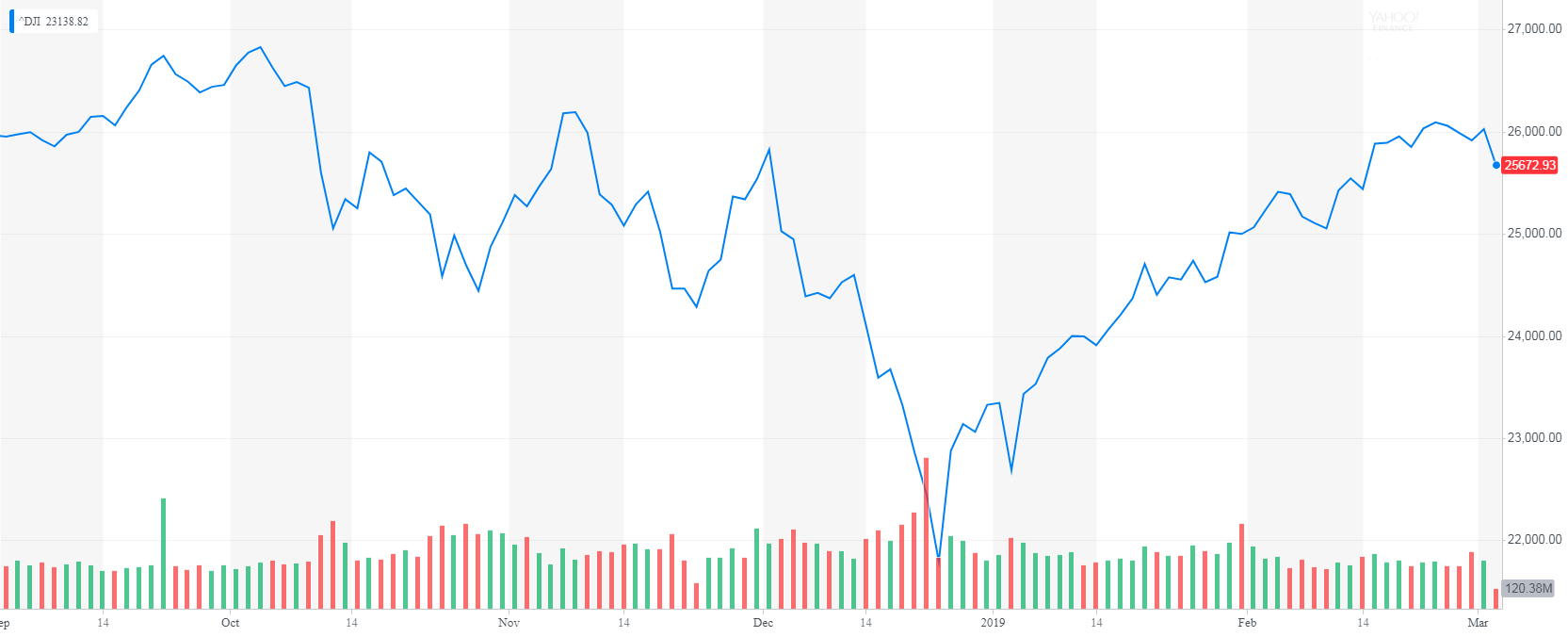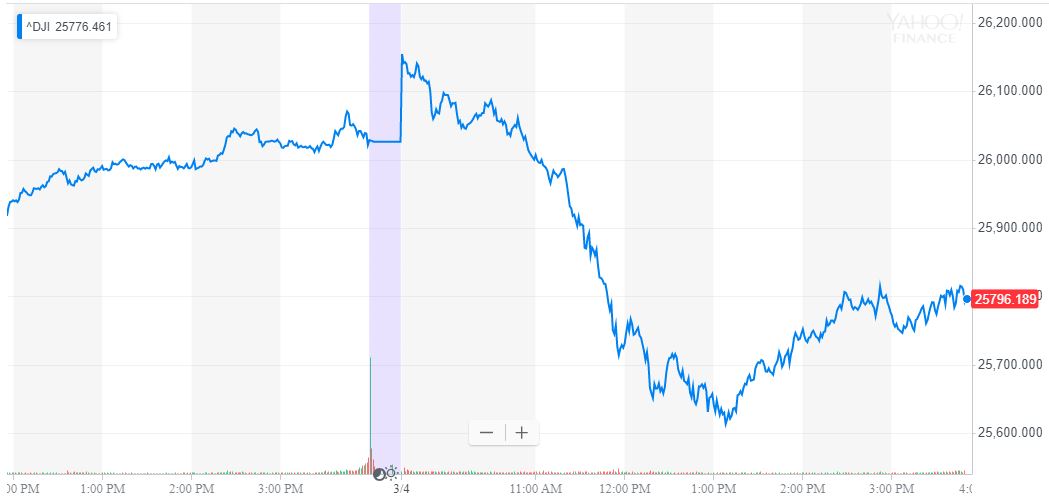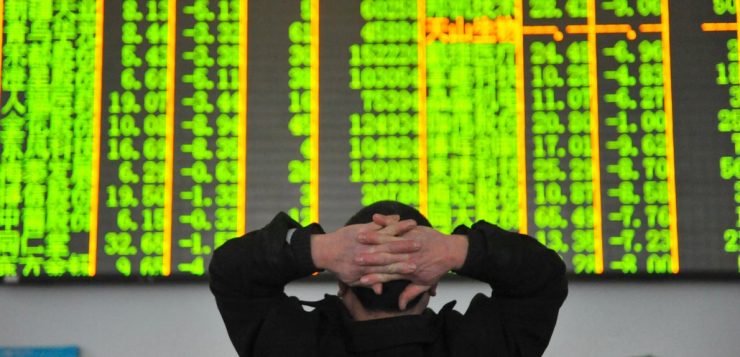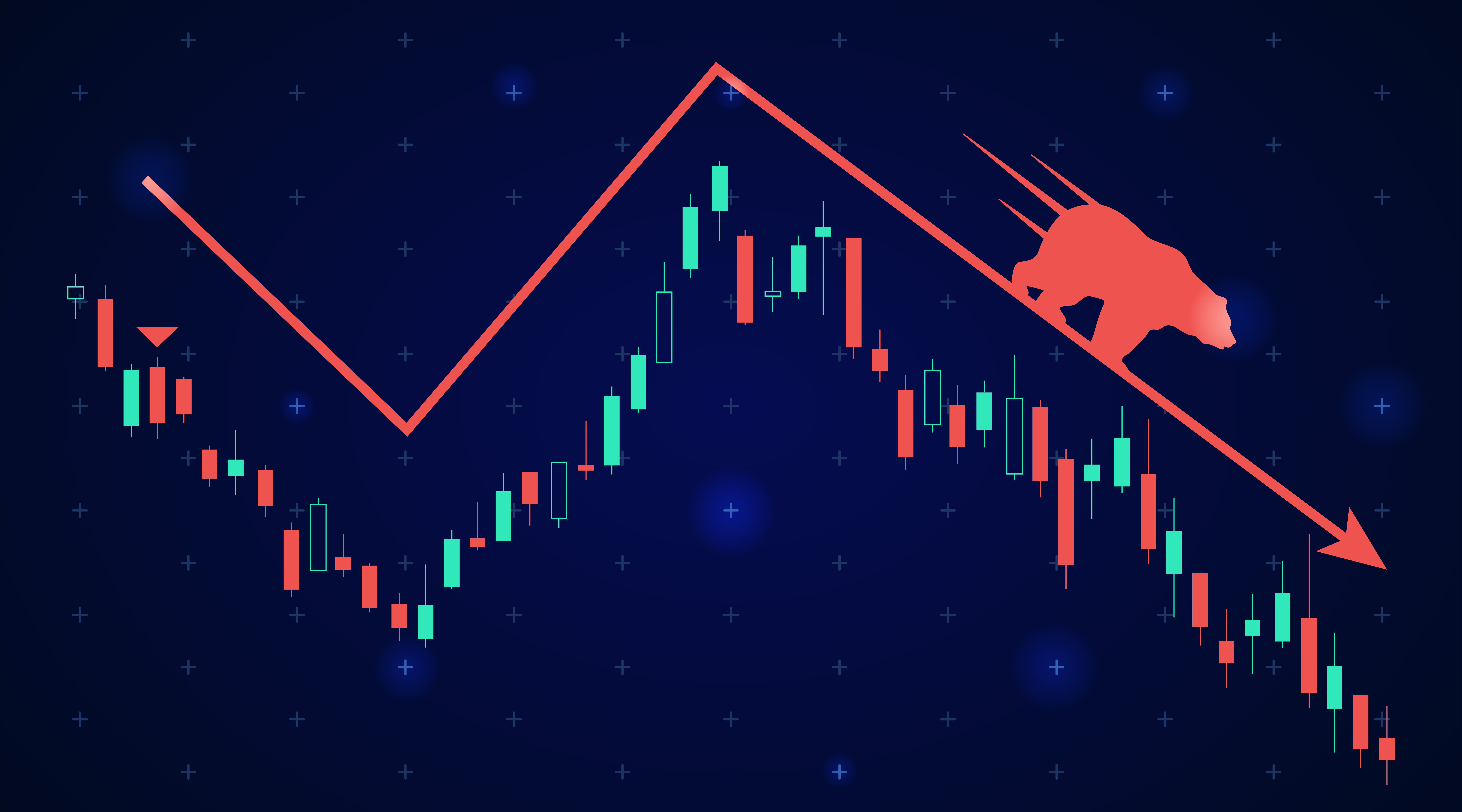There has been practically one story which has been driving headlines over the last few weeks, at least so far as the US stock market is concerned. A razor-sharp focus on incremental progress between the United States and China on trade has been a bullish fundamental for the Dow Jones and its sister indices.
As the Dow has now all but erased its sizeable dip in 2018, it seems a natural assumption that the market has effectively priced out the dangers of further tariffs. As is usually the case, this is an oversimplification.

The Dow Jones has all but erased the dip, but is the chart symmetry misleading? | Source: Yahoo Finance
TRADE ‘IRRITANT’ NOT ‘WAR’
First of all, the announcement that there has been substantial progress made on trade with China is favorable for many reasons. Firstly, it shows warming of relations between the world’s two most important economies.
No one wins in a trade war where two economies are so interlinked as the US and China. What you get is a “best loser,” which traders clearly believed was the US as can be seen by the strength in the dollar and weakness in the yuan.
The dip in the Dow Jones and other major global stock indices was written off as overdone by many great traders, with Paul Tudor-Jones noting on CNBC that calling it a trade “war” was mere hyperbole,
“I would call it more of a trade irritant than a real trade problem. You have to put things in perspective, right? If we look at our four biggest trading partners they have a simple weighted average tariff of about 6 percent, we have one of 3½ percent. So there is a 2½ percent gap in unfairness.”
GLOBAL GROWTH FEARS WEIGH ON OUTLOOK
So at best the fundamentals should dictate that the outlook for trade is back to neutral while earnings have faltered. If you are buying the Dow Jones for immediate improvements in the US economy, perhaps you should take a look at recent signs of slowing productivity. This point of view has started to permeate analyst reports, as Barron’s noted in a recent report with this quote from Neal Shearing at Capital Economics:
“While the dampening down of trade tensions between the world’s two largest economies would clearly be a positive development, it is unlikely to provide much of a boost to global growth this year, Meanwhile, it seems that most of the good news on trade is now priced into asset markets.”
So this is a point to consider. Better US relations with China are a good thing for market confidence. Watching the performance of the Dow Jones on Monday, we can assume that smart money now believes it is an excellent time to cut a little risk. It appears that fresh buyers were vulnerable after a strong start in the futures markets. The deal with China also needs to go through. Xi must make some concessions, and it must be confirmed. Beyond that, the grants must be quantifiably enforced.

DOW JONES STRUGGLES TO START THE WEEK
Even after a later afternoon rally, the Dow is firmly in the red on Monday. | Source: Yahoo Finance
If you believe that the China storyline receding will open up an empty highway for bulls, it is also worth considering that Trump may turn his attention towards European trade. The most attractive thing about US stocks has been impressive earnings, but as the sugar rush from Trump’s handouts fades, companies are struggling to outdo expectations.
Perhaps buying appetite and a need for yield outdoes fundamentals in the current cheap-money environment. This would allow you to maintain a bullish outlook on dips, as the US is both a haven and a world leader in productivity. However, if you are buying solely based on trade war optimism, then you need to make sure you feel confident that the orange is as juicy as the global media establishment has made it look.
Read more at: https://www.ccn.com/dow-drops-200-points-stock-market-immune-trade-war







